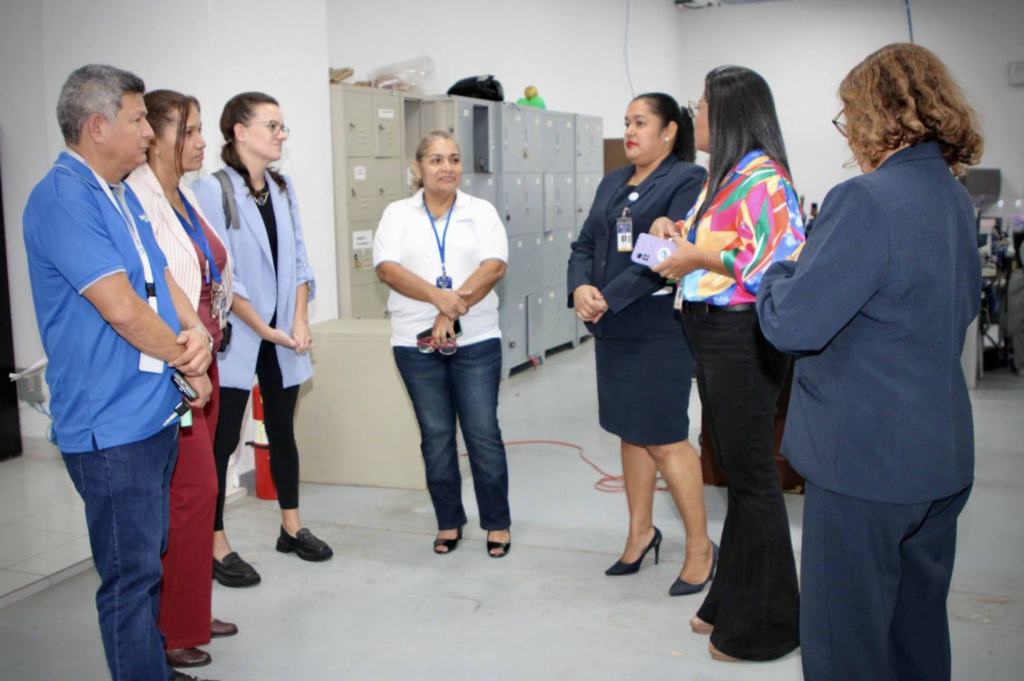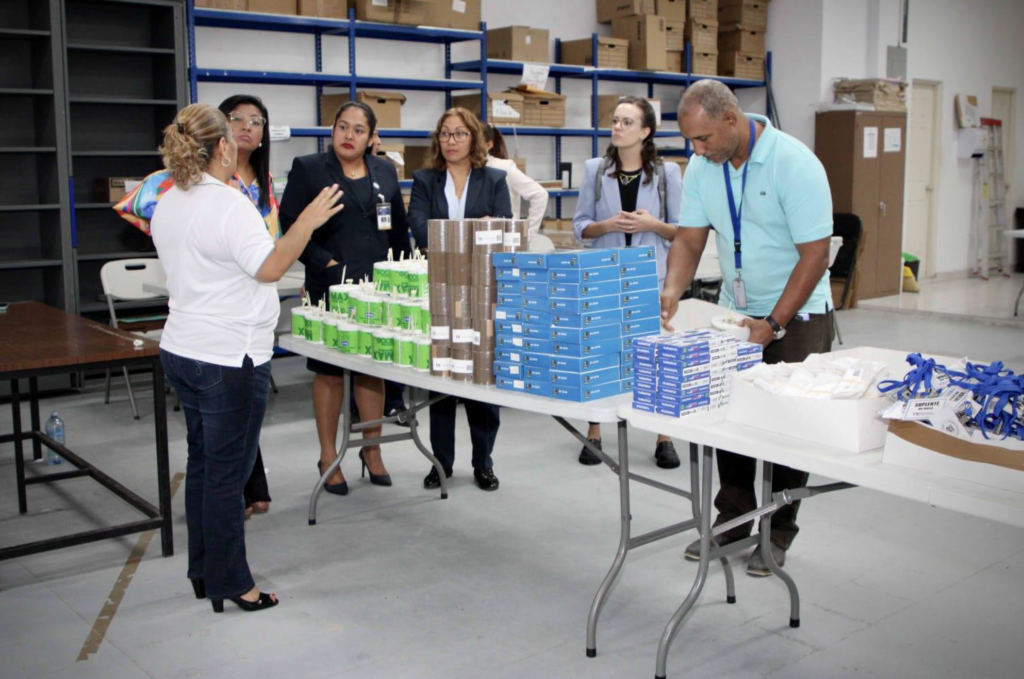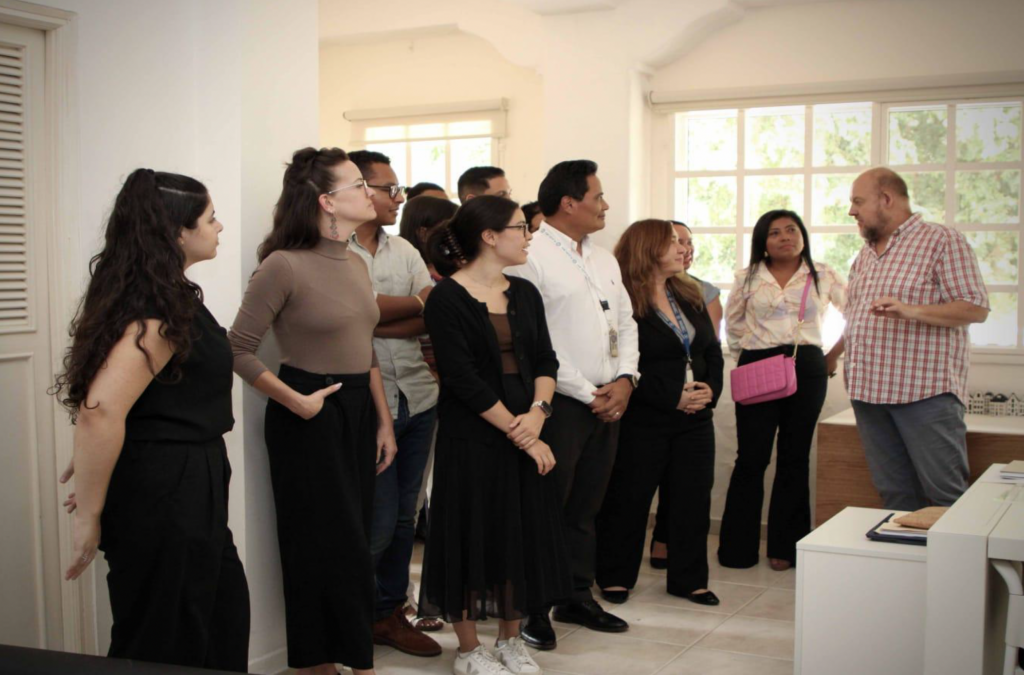By Kaitlin Passafiume, PhD candidate in the UT Spanish and Portuguese Department
After my return from Panama, I am full of reflections about my time spent there working with International IDEA and its partners at the Institute for Democratic Studies (INED). My final month working in these capacities was different from the first, as it was more hands on and largely interactive. In the first portion of my internship, I worked in a largely independent way, developing memos that analyzed youth voting programs across Latin America. In the last half of my internship, I was very much part of a team.
On one special occasion, the INED team led by Aneth Zambrano on which I served were invited to an election headquarters to watch the election table packets being produced before the first round of primary elections in Panama. This was an especially engaging experience, since I was afforded a behind-the-scenes look into election processes that one is typically not compelled to consider. Our team examined each layer of the process as it unfolded and asked questions about standard procedures. This visit aided us in determining how best to adapt this knowledge for our upcoming symbolic youth voting campaign, taking place in Panama on May 5, 2024 as part of a civic education effort to engage youth in democratic processes.


Toward the end of my time in Panama, I presented my dissertation research to an audience of electoral tribunal workers holding various roles in diverse departments within the tribunal. My doctoral thesis focuses on three regions: Mexico, Chile, and Brazil. Within each region, I identify 19th-century colonial processes that created ongoing and systemically reinforced stereotypes through analysis of cultural objects and their aesthetic meaning. Finally, in each regional context, I propose social tactics that work to dismantle these persistent and damaging ideologies, showing how transformative culture can contest cultures of oppression. Presenting this research, I formed a bridge between my long-standing investigative work and the new inquiries I completed with IDEA and INED.
Showcasing one’s specializations in such a capacity is an opportunity for feedback, but I had not anticipated the lively discussion that followed. I was encouraged by the enthusiastic response from this sundry group, and I relished the chance to offer a lens into my own interests and the sort of work that UT Austin sponsors.

Now back in Austin, I am already enjoying direct benefits from my time in Panama. In my professional life, I have advanced from application to interview/testing phase in the running for various career opportunities. What’s more, I feel better prepared to position myself for the sort of cross-cultural work I envision enacting in the governmental or extra-governmental sectors.
In my personal realm, I am rejuvenated after a lengthy bout of burnout that one often sees after a few years of doctoral study. Energetically motivated to complete my studies in Austin, I am encouraged by the affirmations I received through my interactions inside and outside of the Electoral Tribunal in Panama. I am grateful for this unique experience for the ways in which it has buttressed my professional ambitions, but equally for the chance to gain immeasurable foreign work experience, to catapult my language abilities to the realm of near-native, and to cultivate life-long friendships in and outside of the Panamanian Electoral Tribunal.
